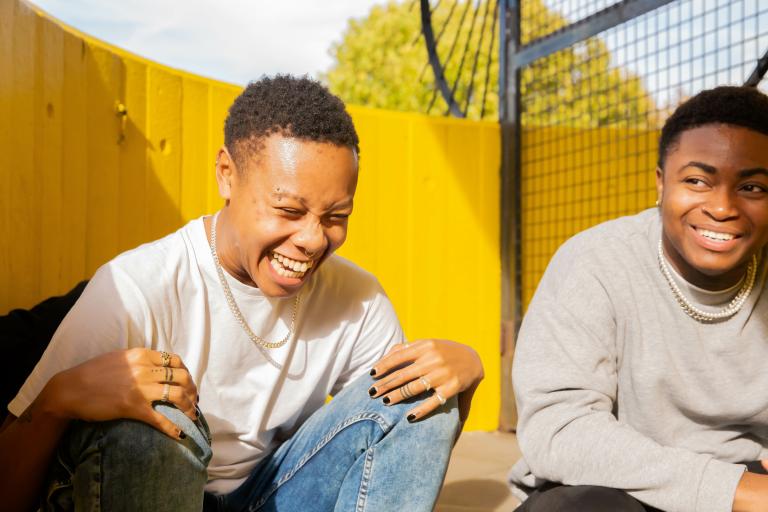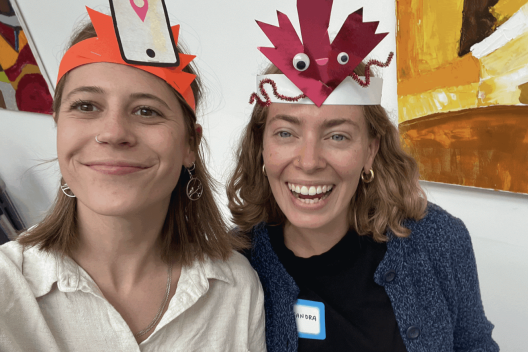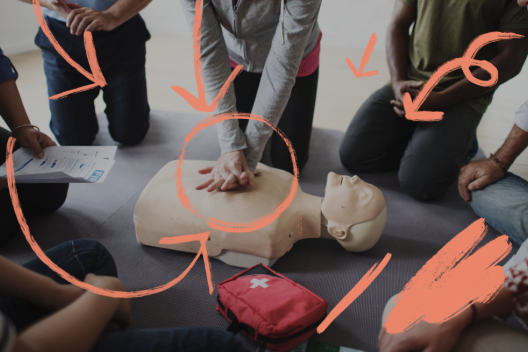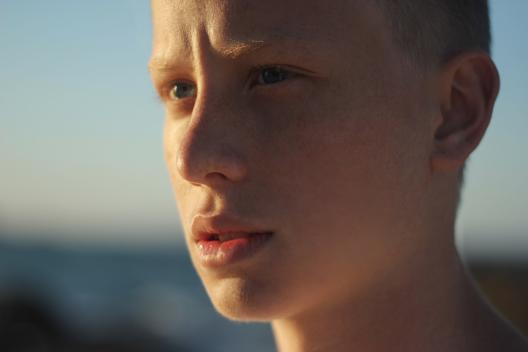We are at risk of losing a generation.
Young people are being failed by a fragmented system and a political agenda that talks about opportunity but too often lets it slip through their fingers. Too many of them continue to struggle:
- One in five 8 to 25-year-olds now has a probable mental health disorder (NHS Digital, 2023)
- Knife crime among under-18s has increased by 47% over the last decade (Youth Endowment Fund, 2024)
- 1.2 million young people aged 16–24 are not in education, employment or training (ONS)
Are we willing to accept a world in which the idea and possibility of a good life is becoming inconceivable for so many of our young people?
At Innovation Unit, we know what it takes to improve outcomes and tackle inequalities. Over the past two decades we’ve worked across children’s social care, mental health, justice, education and employment to design and scale joined-up support that works. We’ve helped create the conditions for real system change across these sectors – and we understand the complexity involved in connecting them.
This is why we believe in the promise of Young Futures Hubs. They were a key pledge in Labour’s manifesto and have since gained widespread support across civil society. The Young Futures Hubs Programme will be a network of 95 hubs, providing safe, community-based spaces where young people can access person-centred, multidisciplinary support.
"These hubs will have youth workers, mental health support workers, and careers advisers on hand to support young people’s mental health and avoid them being drawn into crime."Change: Labour Party Manifesto, June 2024
They aren’t a policy gimmick or a short-term fix. They are a bold commitment to building a new foundation of support for young people – one that is relational, integrated and rooted in place.
However, Young Futures Hubs appear to have vanished from government priorities, and the network of hubs has not come into fruition yet.
The Fund the Hubs campaign has stepped into this gap with a powerful case for action, grounded in young people’s lived experience and practical design principles. We wholeheartedly support their vision: co-design with young people, collaborate across sectors, and provide easy access to multidisciplinary help and support.
Adolescence is getting harder, and the future is even more uncertain
Adolescence has always been a time of turbulence. But young people today are facing challenges of a scale and complexity we haven’t seen before.
More young people are struggling with mental ill-health, exposure to violence and economic insecurity. These challenges are interconnected. Poor mental health can lead to disengagement from education or work, increasing vulnerability to criminal exploitation. Experiences of trauma and exclusion further damage wellbeing and close down opportunity. All the while, support is hard to access. Services are stretched, siloed and difficult to navigate.
And the world is getting more complex. AI and automation are already reshaping the labour market. Climate change is transforming the environments we live and work in.
Systems and services have failed to keep pace, and we have lost touch with the changing, contemporary experience of being young.
Why Young Futures Hubs make sense
We believe in hubs because we’ve seen their impact.
We have seen how dedicated, multidisciplinary spaces and teams can transform outcomes for people. They offer something the current system rarely can: a connected team focused on the whole person, not just the presenting problem.
We have seen great examples of this in our work in community mental health (see Living Well) and our work in children’s services (see Family Hubs) and our work in neighbourhood health.
Young people’s lives don’t fit into service silos. Yet too often, systems respond with fragmentation. The full picture gets missed. Needs are reduced to categories. Opportunities are lost.
Effective hubs would change that. They have the potential to deliver holistic support. They offer consistent relationships, multidisciplinary insight, and trusted spaces where young people can grow their wellbeing, purpose and confidence.
But if they’re seen as places for “problem” young people, they’ll become stigmatised and inaccessible. We need a blend of targeted and universal offers – services every young person can use, alongside specialist support for those facing the biggest barriers. That might mean health advice, careers guidance or support around drugs and alcohol – all of it responsive to young people’s lives, not imposed by the system.
That’s why co-production is non-negotiable. Hubs must be built with young people, not just for them. This can’t be tokenistic – it has to shape everything from the physical environment to the support on offer. Young people know what feels safe, what builds trust, and what matters.
Done well, Young Futures Hubs could do more than improve access. They have the potential to reframe the system around what young people actually need.
Hubs can’t work in isolation – the system needs to shift
But you can’t plonk an integrated, holistic service model into a broken system and expect it to succeed.
The wider system has to evolve too.
We’ve seen this in our mental health work, where new teams were held back by outdated referral routes, disconnected services and recording systems and legacy practices. For integrated models to thrive, the whole ecosystem – from housing to mental health, education to employment – must shift alongside them. The independent evaluation of our Living Well UK programme, showed how the model offers multidisciplinary, preventative, early intervention support, instead of asking people to join long waiting lists for other services.
Innovation Unit has expertise in practical and effective systems change. We’ve supported local systems and places to use public service innovation to drive change in how systems understand and respond to need. Strong examples of this come from our work in children’s social care with projects like No Wrong Door, with national and local partners.
Transformation requires active commitment from across the system – from health and local government to Jobcentres and further education. It takes leaders who are willing to share power, invest time, and stay the course.
Hubs can be the catalyst. But only if the system is ready to move with them.
If not now, when?
Young Futures Hubs are more than a manifesto pledge – they’re a generational investment. A chance to do something bold, urgent and necessary.
But we need brave leadership to seize this moment. We hope the forthcoming National Youth Strategy will make that investment real – setting out a clear plan for the design, delivery and long-term scaling of Young Futures Hubs, and committing to the principles already championed by Fund the Hubs and others.
At Innovation Unit, we’re ready to support this work – through co-design, implementation, facilitation and system learning. And we know many others are ready too: the Fund the Hubs Campaign is advocating for action, and have shared their Blueprint for Young Futures Hubs, setting out their vision. Take a look here.
If you are developing a multidisciplinary hub, or thinking about how to support young people in more integrated, effective and connected ways – we’d love to talk.
Young people are our future, and this is our moment to invest in them. Morally, socially, economically – we can’t afford not to.
Share this page





